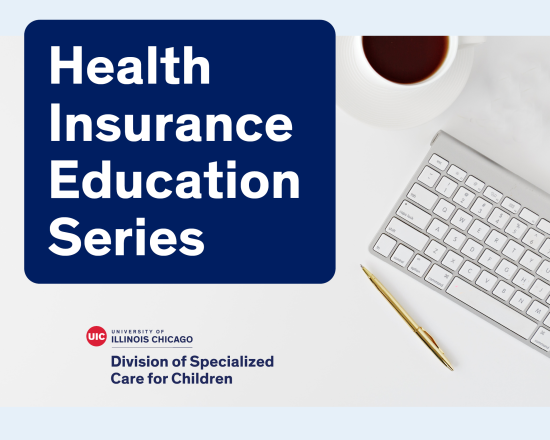Resources to Become a Certified Nursing Assistant

We developed a tip sheet to help guide parents and caregivers through the steps to become a CNA.
We continue to wait for approval to allow parents/legally responsible adults (LRAs) to become paid caregivers if they are a certified nursing assistant (CNA) and employed by a nursing agency.
We understand that our participant families are eager for this change to take effect. Allowing parents and caregivers who are CNAs to become paid caregivers is an important step in strengthening support for families of individuals who need in-home shift nursing.
To help families prepare as we await approval, we’ve put together a Certified Nursing Assistant Resources Tip Sheet.
This tip sheet aims to guide parents and caregivers through the steps to become a CNA. It links to several websites for your convenience and provides general guidelines.
You can also find the CNA Resources Tip Sheet on our Home Care Nursing Information for Families page.
Our Family Advisory Council reviewed this tip sheet to make sure it’s as helpful for families as possible.
Please remember that currently, parents/LRAs can only be paid for providing skilled nursing services to their children if they hold an active registered nurse (RN) or licensed practical nurse (LPN) license. This rule applies to parents/LRAs of all children approved for Home Care Program services, regardless of the child’s age.
The plan to allow CNAs as paid family caregivers requires an amendment to the Medicaid Home and Community-Based Services Waiver for Those Who Are Medically Fragile, Technology Dependent (MFTD waiver). It also requires the creation of a new state plan amendment. Both approvals must be in place to allow for this change.
There is currently no set timeline for the state plan amendment and the MFTD waiver amendment to be approved.
Once approved, we will notify you as quickly as possible.
If you have any questions, please contact your DSCC Care Coordinator at (800) 322-3722.
Free Family Webinar Series Focuses on Medicaid Waivers

Learn more about the MFTD, DRS and DDD Medicaid waivers and how they can help your family
Our annual Health Insurance Education Series returns in March to help families understand important health insurance topics.
In response to family feedback, our 2025 series will explain Medicaid Home and Community-Based Services Waiver Programs for Illinois.
The webinars are open to Division of Specialized Care for Children (DSCC) participants, their family members and anyone interested in these topics.
These free virtual trainings will feature DSCC team members and other presenters covering a different waiver each month:
- Medically Fragile and Technology Dependent (MFTD) Medicaid Waiver, March 11 at 6 p.m.
- The March presentation will focus on the Medically Fragile and Technology Dependent Waiver for children and adults. Presenters from DSCC will explain how to apply, who is eligible, what benefits are available, and how to use the benefits.
- See the MFTD Medicaid Waiver flyer
- Register on Zoom for MFTD Medicaid Waiver
- The March presentation will focus on the Medically Fragile and Technology Dependent Waiver for children and adults. Presenters from DSCC will explain how to apply, who is eligible, what benefits are available, and how to use the benefits.
- Division of Rehabilitation Services (DRS) Medicaid Waivers, April 8 at 6 p.m.
- The April presentation will focus on the different waivers available for children and young adults through the Division of Rehabilitation Services (DRS). Presenters from DRS will explain how to apply, who is eligible, what benefits are available, and how to use the benefits.
- See the DRS Medicaid Waivers flyer
- Register on Zoom for DRS Medicaid Waivers
- The April presentation will focus on the different waivers available for children and young adults through the Division of Rehabilitation Services (DRS). Presenters from DRS will explain how to apply, who is eligible, what benefits are available, and how to use the benefits.
- Division of Developmental Disabilities (DDD) Medicaid Waivers, May 13 at 6 p.m.
- The May presentation will focus on the different waivers for children and young adults available through the Division of Developmental Disabilities (DDD). Presenters from DDD will explain how to apply, who is eligible, what benefits are available, and how to use the benefits.
- See the DDD Medicaid Waivers flyer
- Register on Zoom for DDD Medicaid Waivers
- The May presentation will focus on the different waivers for children and young adults available through the Division of Developmental Disabilities (DDD). Presenters from DDD will explain how to apply, who is eligible, what benefits are available, and how to use the benefits.
- La Excepción de Medicaid para personas médicamente frágiles y dependientes de la tecnología (MFTD), 11 de marzo, a las 6 p.m.
- La presentación de marzo se centrará en la excepción para personas médicamente frágiles y dependientes de la tecnología para niños y adultos. Los presentadores de la División de Atención Especializada para Niños (DSCC) le explicarán cómo presentar la solicitud, quién es elegible, qué beneficios están disponibles y cómo utilizarlos.
- Consulte el folleto de Beneficios de MFTD para obtener más detalles.
- Registrarse para MFTD en Zoom.
- La presentación de marzo se centrará en la excepción para personas médicamente frágiles y dependientes de la tecnología para niños y adultos. Los presentadores de la División de Atención Especializada para Niños (DSCC) le explicarán cómo presentar la solicitud, quién es elegible, qué beneficios están disponibles y cómo utilizarlos.
- Excepciones de Medicaid de la División de Servicios de Rehabilitación (DRS), 8 de abril a las 6 p.m.
- La presentación de abril se centrará en las diferentes excepciones disponibles para niños y adultos jóvenes a través de la División de Servicios de Rehabilitación (DRS). Los presentadores de DRS explicarán cómo presentar la solicitud, quién es elegible, qué beneficios están disponibles y cómo utilizarlos.
- Consulte el folleto de Excepciones de Medicaid de la DRS para obtener más detalles.
- Registrarse para Excepciones de Medicaid de la DRS en Zoom.
- La presentación de abril se centrará en las diferentes excepciones disponibles para niños y adultos jóvenes a través de la División de Servicios de Rehabilitación (DRS). Los presentadores de DRS explicarán cómo presentar la solicitud, quién es elegible, qué beneficios están disponibles y cómo utilizarlos.
- Excepciones de Medicaid de la División de Discapacidades del Desarrollo (DDD), 13 de mayo a las 6 p.m.
- La presentación de mayo se centrará en las diferentes excepciones para niños y adultos jóvenes disponibles a través de la División de Discapacidades del Desarrollo (DDD). Los presentadores de DDD explicarán cómo presentar la solicitud, quién es elegible, qué beneficios están disponibles y cómo utilizarlos.
- Consulte el folleto de Excepciones de Medicaid de la DDD para obtener más detalles.
- Registrarse para Excepciones de Medicaid de la DDD en Zoom.
- La presentación de mayo se centrará en las diferentes excepciones para niños y adultos jóvenes disponibles a través de la División de Discapacidades del Desarrollo (DDD). Los presentadores de DDD explicarán cómo presentar la solicitud, quién es elegible, qué beneficios están disponibles y cómo utilizarlos.
You can also:
- Download a flyer with all Health Insurance Education Series topics and registration links. (The flyer is also available in Spanish.)
- See details about each series session on our Events page.
- Watch the session recordings and access related materials anytime on our Family Education Webinars page.
Our Health Insurance Education Series began in response to questions and suggestions from our Family Advisory Council.
If you have questions about these webinars before or after a session, please email dscc@uic.edu or call (800) 322-3722.


